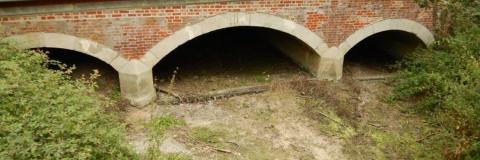Water Supply Questions Remain Unanswered

Having failed to acknowledge a string of facts about inadequate water supply in February, Stephen Kelly, Joint Director of Planning and Economic Development at Greater Cambridge, and his team continue to avoid scrutiny on water supply. They have now been sitting on a new set of questions relating to water supply for a month, while at the same time delivering approval for a vast new development by Cambridge University.
Greater Cambridgeshire Planning are responsible for the supersizing of Cambridge over the past decade, bringing one of the highest levels of growth in the UK to the driest and hottest part of the country.
While many of the region's rivers no longer have the flows required to support the ecology, planners, developers and the University of Cambridge have shown little concern for the environmental impact of their insatiable appetite for growth and profits. It seems ironic that the self branded Cambridge Institute for Sustainability Leadership employs no local sustainability experts, and appears pointedly oblivious to the environmental disaster unfolding on its own doorstep.
Proposals for housing developments on multiple sites including Northstowe, Waterbeach, Cambourne, Bourn Airfield, Linton, West Fields and North East Cambridge amongst others, are vying to deliver 10,000s more green field urban sprawl housing, while Cambridge Biomedical Campus is delivering non essential 'speculative' growth. Developers and estate agents, through organisations like Cambridge Ahead, Cambridge&, and even Natural Cambridgeshire, eagerly promote growth promising riches to all.
The letter I received from the Environment Agency last August, made clear that Cambridge had already outgrown a sustainable water supply, that current levels of abstraction (taking water from the ground) were already causing environmental damage, and that further growth should be tied to new water infrastructure that can deliver water from new sources. The Stantec Report, commissioned by Cambridge City Council and published in November 2020, confirmed the message from the Environment Agency: there is no capacity for further development to be supplied by increased abstraction from the chalk aquifer.
The questions to which we are waiting for answers are attached below.